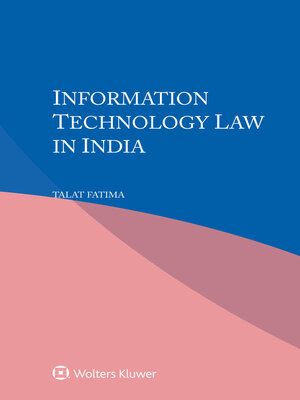
Sign up to save your library
With an OverDrive account, you can save your favorite libraries for at-a-glance information about availability. Find out more about OverDrive accounts.
Find this title in Libby, the library reading app by OverDrive.



Search for a digital library with this title
Title found at these libraries:
| Loading... |
Derived from the renowned multi-volume International Encyclopaedia of Laws, this practical guide to information technology law – the law affecting information and communication technology (ICT) – in India covers every aspect of the subject, including the regulation of digital markets, intellectual property rights in the digital context, relevant competition rules, drafting and negotiating ICT-related contracts, electronic transactions, and cybercrime. Lawyers who handle transnational matters will appreciate the detailed explanation of specific characteristics of practice and procedure.
Following a general introduction, the monograph assembles its information and guidance in six main areas of practice: (1) the regulatory framework of digital markets, including legal aspects of standardization, international private law applied to the online context, telecommunications law, regulation of audio-visual services and online commercial platforms; (2) online public services including e-government, e-health and online voting; (3) contract law with regard to software, hardware, networks and related services, with special attention to case law in this area, rules with regard to electronic evidence, regulation of electronic signatures, online financial services and electronic commerce; (4) software protection, legal protection of databases or chips, and other intellectual property matters; (5) the legal framework regarding cybersecurity and (6) the application of criminal procedure and substantive criminal law in the area of cybercrime.
Its succinct yet scholarly nature, as well as the practical quality of the information it provides, make this monograph a valuable time-saving tool for business and legal professionals alike. Lawyers representing parties with interests in India will welcome this very useful guide, and academics and researchers will appreciate its value in the study of comparative law in this relatively new and challenging field.






